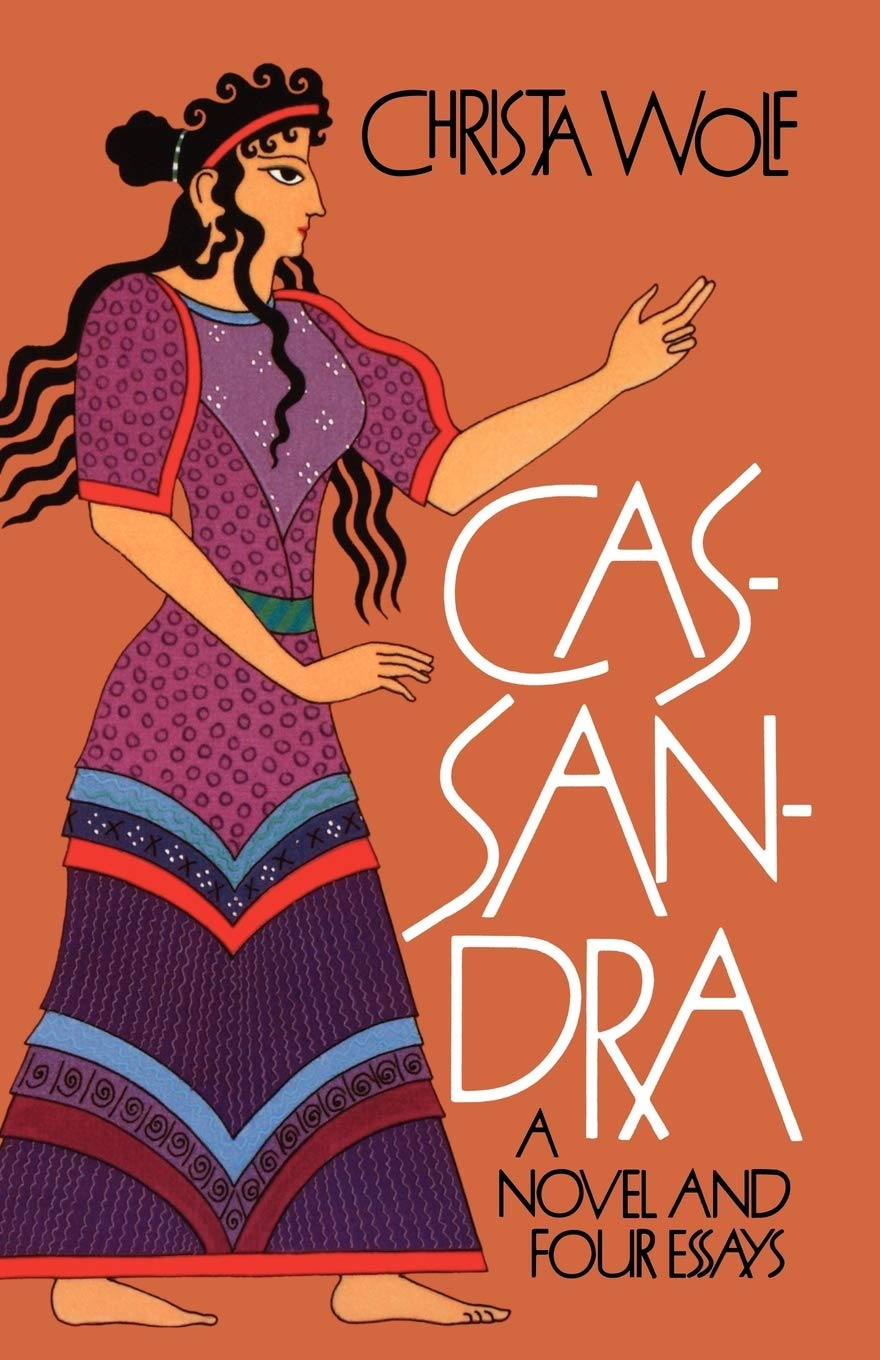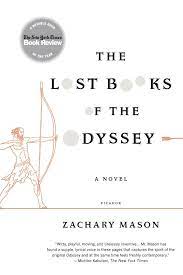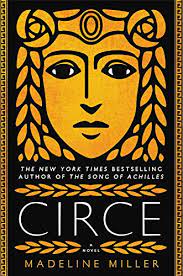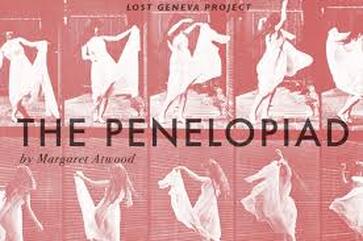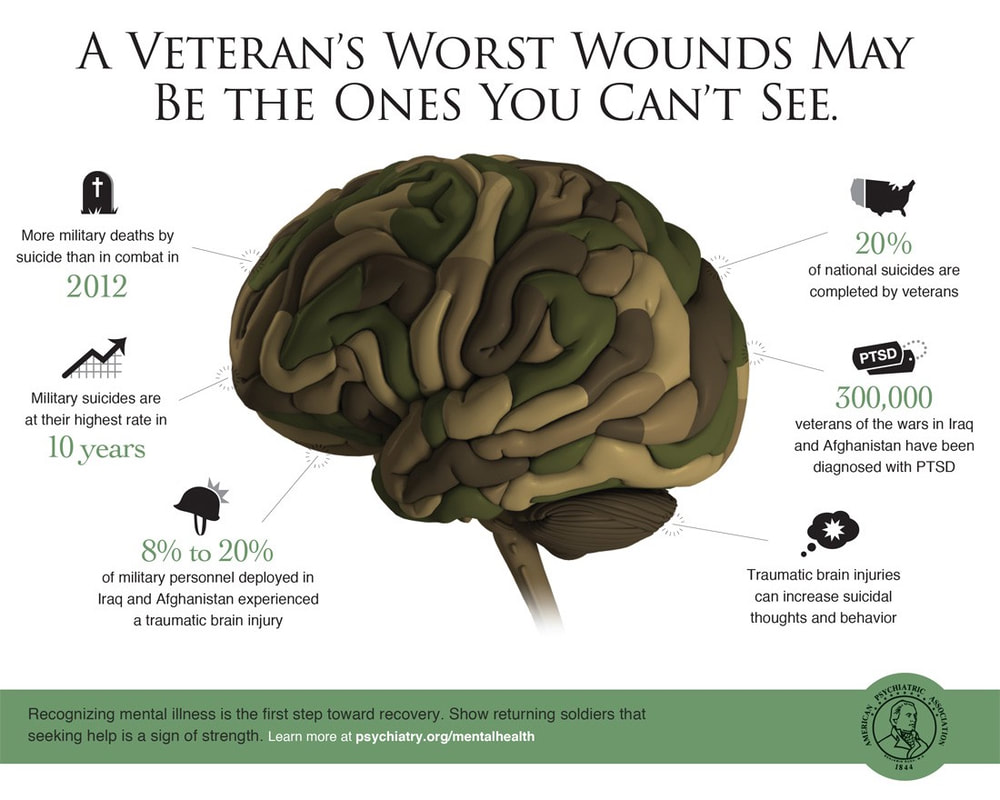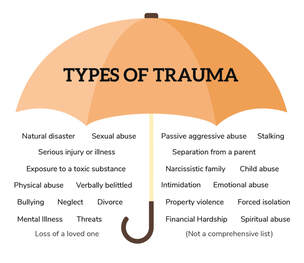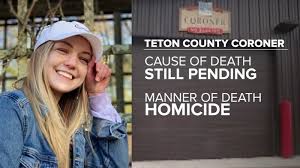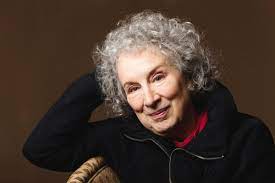 *Trigger warning* The Penelopiad, by Marget Atwood, presents a constant battle of hardship and heartbreak of life for women in ancient Greece. These difficulties stem from both psychological and social pressures that women face in Atwood’s story The Penelopiad. Atwood’s retelling of the Odyssey allows Penelopiad, the wife of Odysseus, the opportunity to share her story and struggles of a young woman married for thousands of years. Women in Atwood's story, The Penelopiad, are raped, which was unfortunately common during the time era. In fact, in greek mythology, rape not only occured, but was almost justified. I believe this justification and commonality of occurrence largely factors into the physiological pressures of women in the Greek world during that time era. The emotional response to rape often lasts a long time and includes, but is not limited to, depression, flashback, and PTSD. Many survivors of sexual assault tend to struggle with feelings of shame, guilt and embarrassment and often have a decreased level of trust in others that are outside of their typical support system. Symptoms of trauma, anxiety, and depression after rape can last for months or even years. Not only can sexual violence have an effect on ones physiological state, but it can heave an effect on their emotional and physical behavior and well-being as well. Although we have a long way to go in how we treat rape culture today, have come a long way from the way that it was treated during the time period of Greek Mythology. Really, during that time period, rape was so common that it was not a second thought when it happened, which means that victims did not receive proper help after the occurrence of these instances. I believe that this greatly contributed to lasting psychological effects for the characters throughout Atwood’s story, contributing to the social pressures that women faced to act as if they were fine after these instances occurred. Luckily in todays society there is much more of a prominence of resources for rape victims. A lot of these resources are oftentimes found on college campuses, such as therapy and rape kits, or may be found through psychotherapy, counseling, or even through calling the national Sexual Assault Hotline, all of which can help in ones healing process. Though rape has been termed as more of a deviant act in our society nowadays, there unfortunately is still a stigma surrounding rape. In fact, sadly, 63% of sexual assault incidents are not reported to police. I can only imagine how high this percentage must have been during the times in which The Penelopiad took place, leading to psychological and social pressures for many women. Resources for sexual assault survivors: National Sexual Assault Hotline: 1-800-656-4673 https://ct.counseling.org/2016/08/counseling-survivors-sexual-assault/# https://www.sacenter.org/heal/types-of-therapy-and-treatment.aspx References: https://www.rainn.org/effects-sexual-violence https://feminisminindia.com/2017/10/06/origins-rape-culture-mythology/ https://psmag.com/social-justice/lifelong-consequences-rape-96056 https://ct.counseling.org/2016/08/counseling-survivors-sexual-assault/# https://www.ncbi.nlm.nih.gov/pmc/articles/PMC7239557/
0 Comments
 Women empowerment - a movement that has been on the rise, especially with the emergence of the #metoo movement and the push for equal pay. Madeline Miller’s story of Circe focuses on this important idea of women empowerment and how women cope in a society that views women as inferior to men. Circe, the main character in this greek mythology is a nymph, and all nymphs are seen as the bottom of the totem pole. In ancient Greece, women are at the bottom of the power hierarchy, which greatly affects their ability to gain any kind of power. Much like women are at the bottom of the totem poll when it comes to pay and the gender pay gap that exists in our society. Women make 82 cents for every dollar that men make. As a woman, she is susceptible to both violence and abuse from not only men but also from immortal gods. Circe also deals with the idea that women are not meant to hold power, as they are “inferior to men”. When women have power, they are distrusted and those who possess power attempt to constrain them. This can be seen directly when Circe and Pasiphaë’s abilities are discovered, Zeus and Helios become afraid of their powers, and as a result, exile Circe to an island where she can do no more harm. The irony here is that Perses and Aeëtes also possess magic, but there are no significant attempts to lessen their power simply because they are males. Though Circe is just a story, each and every day women face the struggles of men believing that they’re superior to women. Some men, like Brock Turner set the precedence for our society and show that their actions rarely lead to actual punishment, continuing the idea of empowerment over women. More reprimands for their actions must occur, as men like Brock Turner are hardly punished for their ungodly actions. Men like Brock believe that they are entitled to a woman and her body. This will never change until there is a significant change in our society. I believe that this change is on the rise because of the #metoo movement and because feminism is becoming a more and more common belief, however, we still have a long way to go. Truly, I think men feel entitled because they are scared. They're scared of women taking their spots, taking their jobs, and taking their livelihood. Men fear women with power, just like Zeus and Helios fear Circe. Circe finds that these men have a distrust in women, leading her to feel isolated physically and emotionally, a feeling many women are all too familiar with. So how do we women cope with these men who think that they’re better than us? We prove them wrong. We receive degrees, we become doctors, we become strong leaders. We prove to these men that we are more than capable of holding positions that they hold, that our bodies are OUR bodies, and they are not entitled to us or anything else for that matter. https://www.litcharts.com/lit/circe/themes https://www.aauw.org/app/uploads/2021/09/AAUW_SimpleTruth_2021_-fall_update.pdf https://www.nbcnews.com/know-your-value/feature/it-s-2021-women-still-make-82-cents-every-dollar-ncna1261755 https://www.cnn.com/2016/09/02/us/brock-turner-release-jail/index.html 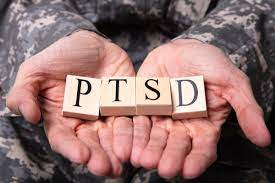 The idea of homecoming is heavily present throughout Zachary Mason's book, The Lost Books of the Odyssey, which is a modern take of the Odyssey. We learn of Odysseus’s return to his homeland following the Trojan war depicts him as a suffering war veteran, which elicits a theme of homecoming. This theme of homecoming makes me think of the happy homecoming that our soldiers come back to after their time at war. Unfortunately, like Odysseus, our soldiers do not always come home to happiness and a world full of positivity, but rather oftentimes are faced with responsibility, stress, and even PTSD. As of 2020, about 17% of military veterans return after war with PTSD, and veterans who are deployed to Iraq and Afghanistan in operations Iraqi Freedom and Enduring Freedom display an 11 to 20 percent chance to develop PTSD in a given year. When faced with PTSD, easy tasks often seem unmanageable and unattainable. Random occurrences can trigger panic attacks and/or contribute to PTSD attacks and flashbacks. These flashbacks can be detrimental to individuals, especially when not knowing what all contributes to them and brings on the attacks. Similarly, in Mason’s telling of the Odyssey, after the return to his homeland of Ithaca following the Trojan War he depicts Odysseus as a suffering war veteran in Chapter 40 which prompts the reader to consider how the Ancient Greek concept interacts with the journey that these modern veterans deal with in terms of coping with their mental health after their time at war. You can read more about PTSD in veterans here: https://diotima-doctafemina.org/reviews/literature-review/the-lost-books-of-the-odyssey-by-z-mason/#:~:text=Mason%20retains%20all%20of%20Homer's,might%20have%20been%20otherwise%20possible. https://www.ptsd.va.gov/ https://www.helpguide.org/articles/ptsd-trauma/ptsd-in-military-veterans.htm 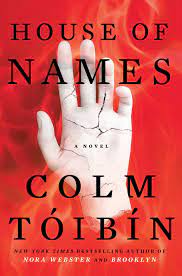 Having a traumatic and life-altering event most certainly has an effect on people and their view on the world. Oftentimes as humans, it is only natural to seek vengeance when we are wronged by an individual. Tóibín shares the story of a modern day Oresteia, but in his version, both Clytemnestra and Electra get to tell their own stories and personal narratives. In House of Names, we learn how similar to hope vengeance really can be, specifically to individuals who have been traumatized throughout their lifetime. The topic, not surprisingly once again seems oh so familiar to my psychology background. From my studies over the past 4 years I have discovered that oftentimes we relate disorders and diagnoses back to an individual's childhood. It seems that more times than not, that child has encountered a traumatic experience that will forever alter their perspective on the world. So the question is, do these traumatized children seek out vengeance like the characters of the House of Names? There are three main types of trauma: Acute, chronic, and complex. Acute trauma is from one incident, chronic trauma is repeated and prolonged trauma, and complex trauma is an exposure to varied and multiple traumatic events that are frequent and invasive. When an individual views themselves as severely harmed by a person and holds that person accountable for their trauma, the individual's ego assesses the harm as wrong, therefore developing a desire to retaliate. Revenge is then sought out to re-equilibrate the losses the individual experienced due to their trauma. This need for revenge and re-equilibrium oftentimes is intended to allow the victim to regain a sense of control over the situation, which is specifically important because the perception of one's ability to influence others and need for power and control is a basic human need. One's desire to seek revenge is a universal response in all human cultures. Tóibín focused on this universal response from the murder of Iphigenia to the murder of Clytemnestra. In his version of the story, Orestes is kidnapped by Clytemnestra and held in captivity with other boys, who were held hostage. So can the desire for revenge stem down to our parents? We know that the characters in this novel have quite large shoes to fill in terms of their parents' actions. The saying, “the apple doesn't fall far from the tree” is a common term used for when a child inherits characteristics or mannerisms of their parents. Sometimes, this happens because children are conditioned to the acts of their parents, whether those acts are right or wrong. Throughout the book we see the characters learning to step in or failing to step out of roles that their parents filled, roles that they have inherited the skills and characteristics for. Towards the end of the novel even Orestes notices the resemblance when looking at his sister explaining that he “saw his mother”. The apple didn't fall far from the tree, and their actions appeared uncanny to him. Could his sister's actions so similar to the actions of their mother be due to the trauma that she witnessed over time? She grew up witnessing unspeakable acts that her mother committed, conditioning her to think these acts were what she had to do to get by. So does that mean we can truly tie everything back to trauma when explaining why people are the way they are? Truthfully, in short no- but when looking at traumatized individuals situations in depth, oftentimes this is the case I would say. Overall, current literature and studies suggest that the desire for vengeance and revenge fantasies are a form of “narcissistic repair” that reinforce ego stability after harmful experiences. I believe that in his novel, that is exactly what Tóibín was trying to portray. https://earlyconnections.mo.gov/professionals/trauma-informed-care https://www.frontiersin.org/articles/10.3389/fpsyg.2019.00886/full https://www.nytimes.com/2017/05/11/books/review/house-of-names-colm-toibin-bright-air-black-david-vann.html https://www.frontiersin.org/articles/10.3389/fpsyg.2019.00886/full The Livelihood of a Woman Throughout time, women throughout the world have struggled to be seen, heard, and taken seriously. In the book, Cassandra, Christa Wolf paints this picture depicting the struggle women face, occurring during the aftermath of the Trojan war. The story is told by Cassandra, a strong and intelligent young woman who wants to voice her opinions and stand up for what she believes in. The theme of Cassandra is boldly evident throughout the entire book: female strength and the importance of women having a voice. Cassandra refuses to cooperate with a plan to use Polyxena, her sister, to trap Achilles in the temple of apollo. Her ideas and input are dismissed because although she's royalty, she's a woman -a woman who is speaking out against the statements of a man, contradicting their arguments. Although Cassandra’s refusal of this ridiculous plan may seem that she is simply “being difficult”, or that she was standing up to a “superior”, it was so much more than that. Her refusal signifies a refusal for women everywhere. The refusal to follow the demands of a male who is attempting to abuse his power. The refusal to allow another man to take advantage of a woman, once again. The refusal to allow for the abuse of women everywhere. Not every woman has the strength and voice that Cassandra has to speak out against this war on women. Sadly, many women are unable to escape the grasp of their abusers and become the victim of domestic violence, or even worse, death. Given the events occurring in the US right now, this refusal Cassandra stands for is more important than ever. Cassandra spoke out for the women who couldn't-- women like Gabby Petito. If you are unfamiliar with the developing case of Gabby Petito and her ex fiance Brian Laundrie, you can click here to learn more information. You can also do your own research to form your own thoughts and opinions of what you believe happened with this case. To summarize, Gabby Petito and her boyfriend/ex-fiance went on a hiking trip in her van out west for a few months. After receiving a call about a domestic dispute, officers were called to the scene and approached the couple. In all of the body cam footage from the officers, Brian can be seen laughing and joking around with the officers, yet we see a distraught and sobbing Gabby Petito. The cops all believed that Gabby was the aggressor and that Brian was the victim, even though the initial 911 caller said that they witnessed Brian slapping Gabby (Looking at this footage now, it’s tragic to see that we did not recognize the red flags in the video). The two were separated for the night, and went on with their trip. A few days later, Brian shows up at home, in Gabby’s van, with no Gabby. He immediately “lawyers up” the second he gets home and refuses to talk to police, suspicious, right? Gabby is labeled as a missing person by her family, and shortly afterwards, officers find her deceased body. The case is particularly interesting to me because Brian, who is not yet in police custody, nor considered a suspect, goes “missing” suddenly. Not only did he go missing, but his parents weren't even looking for him. What parents wouldn’t panic when their son suddenly disappears with no form of contact… unless, they are simply throwing the FBI off of his trail to cover, because they are in on Gabby’s death as well (this has not been confirmed by any source but has been highly discussed across many social media sites). Gabby’s family is insistent on the fact that he is not missing, he is hiding -- based on the circumstances, I would agree. The FBI are currently searching for him. Clearly he has something to hide, I mean why else would he be refusing to talk to police and be insistent upon getting a lawyer the second he arrived home? And furthermore, why would he suddenly disappear? Now that you know some basic background information on the case and know a very condensed version of the tragic story, you can see the relevancy of men having power over women once again. We need to advocate for women and the importance of women having a voice. Cassandra speaking up about women empowerment needs to spark a much needed discussion; we must empower women and eliminate tragedies like this from happening each and every day. The police chose Brian’s giggly and happy-go-lucky story over the story of a distraught young female. Many believe that Gabby was trying to protect Brian when they were initially pulled over. Was she covering for him? It’s clear in the videos from the officers that Gabby is not okay. Brian’s nature is clearly narcissistic, and personally I’d even go as far to say sociopathic. How was she labeled as the aggressor and Brian the victim? How did they not ask her, a distraught and frantic woman, if she needed help? There are just so many questions waiting to be answered. How did we fail her like this? Because Brian had the power in the situation. HE remained calm and laughed off the situation, HE called her crazy...yet now her family is presented with a dead body and no answers. This is just one of the many instances of a males dominance and abuse of power asserted over a female. In the grand scheme of things, Cassandra refusing to be a part of the ploy was her way of speaking out for women everywhere. She spoke for women like Gabby Petito who couldn't get out of a toxic relationship and save herself, for the women everywhere that go missing each day, and for the women who fall victim to their abuser because they don't have the resources or are too scared to leave. https://www.nytimes.com/2021/09/20/style/gabby-petito-case-tiktok-social-media.html https://classicalstudies.org/annual-meeting/147/abstract/christa-wolf’s-cassandra-different-times-different-views https://classicalstudies.org/annual-meeting/147/abstract/christa-wolf’s-cassandra-different-times-different-views 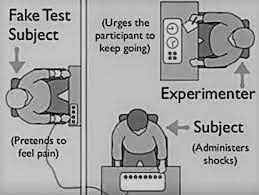 Bringing Psychology to Greek Lit The Oresteia is a trilogy about the house of Atreus. This intense trilogy largely focuses on the contrast between justice and revenge, or in other words good versus evil. Orestes plans on revenge in order to retaliate after the murder of his father. In Aeschylus we read that the difference between right and wrong and good versus evil is not as clear cut as we once thought it was. This is a very complex theme to unpack as there are many important factors going into this statement. For example, are all people inherently good or evil? Are some of us naturally born one way or another in the sense of good or evil? And most importantly is it really as black and white as good versus evil? Maybe we are all just human and make some mistakes and are neither fully good nor evil. Personally, I believe that people are naturally good...or at least that's what I want to believe in my own little world over here. Realistically though, as much as I want to believe people are naturally good, there have been many studies arguing both sides of the debate, like the Milgram study. Stanley Milgram researched how some people would (or would not) be willing to harm other people. The results concluded that humans are programmed to obey orders, no matter what the order is, even if that means hurting someone. Again, tying this back into our theme here, so does that make them a naturally evil person if they were willing to hurt someone? Or does that just mean that they made a mistake? Or, get ready - here’s the real kicker, did they just do it because that’s what they are told to do which in reality, doesn't even really portray their good versus evil mannerisms very well. The play hints at the fact that the characters in it are not necessarily bad, or evil, per say, but rather they just happen to get unlucky in their experiences. Personally, I think this may be the author's way of portraying our reality of unluckiness. Life as we know it is not fair, we experience many unfortunate events and hardships throughout our lives -- and some more than others. Some of us are more blessed in this aspect, that we are born into a wealthy family, or are privileged in more ways than we think. But not everyone gets that lucky. Though it's not fair the cards that we are dealt, we still must push on and be our best that we can be each and every day. So once again, as a psychology student, my brain immediately goes to the nature versus nurture theory and how that has an effect on people turning out as good or evil. Does who we are raised by affect if we become a good or evil human being? As psychologists unravel this controversial and classic debate about the role of nature (inherited) versus nurture (learned), we learn that nurture is commonly known as the influence of external factors after we are born into/with. There is evidence to support both sides of the argument and most conclusions with the argument end in people agreeing that people are affected by both nature and nurture. Though our environment and background help improve us being a good person, some of this goodness we display is also affected with what we were born with. In short, nature and nurture are always working together to contribute to the aspect of good versus evil, even though truly there is not simply not just a good or just an evil. We should be conscious of this black and white thinking. Oresteia spends the majority of its plays warning against this thinking. We all have many aspects of both good and evil, and it is affected by both our nature and our nurture. You can read more about the Milgram study here: https://www.simplypsychology.org/milgram.html |
AuthorHi! My name is Alyssa and I am a fourth year Psychology major! When I'm not busy with work and school I enjoy cooking new recipes, and binging Schitt's Creek on Netflix. Archives |
